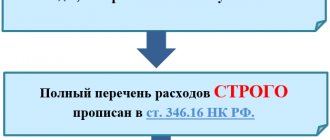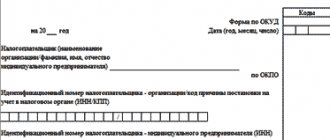Expert of the magazine “Regulatory Acts for Accountants” A.F. Klyuev provides a commentary on the letter of the Ministry of Finance of the Russian Federation dated October 14, 2013 No. 03-04-06/42790.
A branch of a Russian organization pays taxes in the foreign country in which it is registered. For personal income tax purposes, are the payments he makes to employees income received from sources outside the Russian Federation:
- wage;
- compensation for travel expenses to your place of work and residence;
- payment of the cost of visas and health insurance;
- average earnings while on vacation and on a business trip;
- material aid;
- payment of travel expenses?
The concept of income from sources in the Russian Federation and from sources outside the Russian Federation
Economists have even coined a special term for Russian companies operating outside the country - transnational corporations.
In this regard, a significant number of collisions are possible, which can lead to a number of uncertainties in the area of their taxation. That is why the legislation of the Russian Federation divides sources of income into those received within its territory and outside its borders.
The basic norms are contained in Art. 42 NK. However, the basic rules are established at a special level (payments to the budget for personal income tax and income tax). Such rules of federal legislation must take into account the concluded 2-party agreements on the prevention of double taxation with other countries.
The purpose of the separation is to establish simple rules according to which tax benefits and exemptions apply.
It also ensures that companies save resources during the preparation of financial reports for shareholders and investors. They are not very different from the requirements of government regulation, according to which tax payments are calculated and entered into the budget.
Double taxation and how to avoid it
Owners of apartments abroad will not be affected by the issue of paying duties to the state until they want to sell the property. Very often, ignorance of the tax code leads to entrepreneurs losing a lot of money, wanting to make a profit from the transaction. Payment of duty on the sale of real estate is also mandatory and is calculated at a rate of 13 percent, depending on the place of residence of the owner. To dispose of an apartment in this way, you must be its owner for at least 5 years. It is possible to sell real estate earlier, provided that the owner acquires another property in a short period of time, at a cost specified in the terms of the program for obtaining citizenship of the country.
In Russia, in this case, 5 years of ownership of an apartment or other object allows you to sell it without paying taxes. If the property was inherited or was acquired outside of various programs, then it can be sold at any time by paying 13% of the profit to the Russian tax authorities. In addition, there are also other taxes when selling an apartment in different countries of the world.
A resident of the Russian Federation who owns an apartment in Bulgaria and wants to sell it without a huge loss of money on payment will need to familiarize themselves with the agreement in order to avoid double taxation. The document indicates all types of taxes for which it is valid, and all persons who can fall under it. Russia has signed this agreement with 82 countries. The agreement applies to situations where the property of an individual is located in a state where he is a non-resident.
It is also worth remembering about additional costs when selling an apartment in Bulgaria. One of these is the tax on increases in the market value of capital. If the price of the property has increased compared to the purchase price, the owner will have to pay 10 percent of this difference. Profit from the sale of an apartment that has been the owner’s permanent residence for more than three years is exempt from taxation.
What applies to income from sources in the Russian Federation
The list of these cases is determined only in the chapter establishing payments to the state budget for personal income tax. They are defined in Part 1 of Art. 208 NK:
- dividends and interest paid by Russian companies. In addition, the object of taxation on payments to the budget is interest received from individual entrepreneurs. This group also includes interest from organizations that, although classified as foreign, are paid in connection with the activities of the Russian division;
- insurance related payments. At the same time, the source of these is Russian companies, or foreign ones fulfilling obligations through Russian divisions;
- any benefits provided for by federal legislation governing copyright and related rights. At the same time, the source of their formation on the territory of Russia is important;
- any benefits associated with the transfer of property located on Russian territory under a lease or other agreement. An example of the latter would be a rental agreement;
- benefits associated with the implementation of a number of civil rights objects in Russia. Their list is open;
- remuneration received for the performance of labor duties or actions under other contracts in Russia. At the same time, aviation and water vessels that are located outside the country, but fly the state flag of the Russian Federation, are equated to them. These same cases include situations where non-residents receive remuneration for serving on the boards of directors of Russian companies;
- various payments from the state (federal, regional) or local budget (pensions, scholarships, etc.). These also include private sources. The latter include foreign organizations making payments through their Russian representative office;
- payments related to the chartering of transport carrying out transportation both within the country and in cases of international flights, if the route includes the territory of the Russian Federation. They include penalties, fines and penalties received;
- funds received by inheritance, paid to the budget of the Pension Fund of the Russian Federation or to a non-state pension fund as a funded part of the pension.
This list is open in nature and includes only the main cases, therefore, the number of incomes that take into account tax rules may also include other benefits received in Russia.
Clause 2 of Article 208 of the Tax Code of the Russian Federation
For the purposes of this chapter, the income of an individual received as a result of foreign trade operations (including commodity exchange) carried out exclusively on behalf and in the interests of this individual and related exclusively to the purchase (acquisition) does not apply to income received from sources in the Russian Federation. goods (performance of work, provision of services) in the Russian Federation, as well as with the import of goods into the territory of the Russian Federation.
This provision applies to operations related to the importation of goods into the territory of the Russian Federation in the customs procedure of release for domestic consumption only if the following conditions are met: (As amended by Federal Law No. 306-FZ dated November 27, 2010)
clause 1, delivery of goods is carried out by an individual not from storage places (including customs warehouses) located on the territory of the Russian Federation; (As amended by Federal Law No. 166-FZ dated December 29, 2000)
clause 2 (Subclause has lost force - Federal Law dated July 18, 2011 No. 227-FZ)
Clause 3 , the goods are not sold through a separate division of a foreign organization in the Russian Federation. (As amended by Federal Law No. 216-FZ dated July 24, 2007)
If at least one of the specified conditions is not met, income received from sources in the Russian Federation in connection with the sale of goods is recognized as the part of the income received relating to the activities of an individual in the Russian Federation.
Upon the subsequent sale of goods acquired by an individual through foreign trade transactions provided for by this paragraph, the income of such an individual received from sources in the Russian Federation includes income from any sale of this product, including its resale or pledge, from those located on the territory of the Russian Federation, warehouses belonging to this individual, rented or used by him or other places of location and storage of such goods, with the exception of their sale outside the Russian Federation from customs warehouses. (As amended by Federal Law No. 166-FZ dated December 29, 2000)
What applies to income from sources outside of Russia?
Such benefits are listed in Part 3 of Art. 208 NK. These include the following cases:
- dividends, as well as interest, the source of which is a foreign company operating through its headquarters or other foreign subsidiary;
- payments under insurance agreements concluded with the foreign division of a foreign company;
- all foreign payments related to the implementation by residents of their copyright and related rights;
- rental payments in connection with foreign property transferred for use;
- benefits arising from the alienation of foreign property, as well as the transfer of rights of claim to a foreign company not related to the activities of its Russian subsidiary;
- payment under employment and civil law contracts if the activity was carried out outside of Russia. These same cases include remuneration to members of collegial management bodies of foreign companies, even if the corresponding functions were performed on Russian territory;
- social payments from the budget of foreign states;
- benefits associated with the use of transport, the routes of which pass outside the borders of the Russian Federation;
- profits from a controlled foreign organization.
This list is also open in nature and may be supplemented by other cases of receiving benefits from foreign sources.
Documents for the tax return
In order for the verification to take place quickly and painlessly, it is necessary to provide supporting documents along with the declaration. They should be clear not only to the investor himself, but also to the inspectors. Since these types of income are declared quite rarely, inspectors may have questions.
The following copies of documents are provided along with the declaration:
- A document confirming the opening of a brokerage account (this may be an agreement with a broker).
- A report on transactions with a broker for the reporting period with information about the amount, currency and dates of transactions (you can prepare such a report in the broker’s personal account or request it from the broker). Additionally, you can provide a report on Form 1042-S , which is issued by American brokers after March 15 of the following year for the previous year. For a sample Form 1042-S, see the appendix to this article .
- Own calculation for all transactions with currency conversion into rubles for each transaction. This document is drawn up in free form and is based on the broker’s report. Each transaction is recalculated at the rate of the Central Bank of the Russian Federation, commissions and other expenses are taken into account. The calculation must be made separately for securities and separately for FISS (when filling out the declaration, income is taken into account using different codes).
- Explanatory note explaining the calculation of the tax base and distribution of expenses. This is an optional document.
- If in previous periods there was a loss that is included in the reporting period, then it is necessary to provide a corresponding application for the transfer of losses to the following periods.
You can add any documents on ongoing operations to this list. If any supporting documents are not in Russian, then a translation must be attached (a simple line-by-line translation is sufficient).
If you have several accounts with different brokers through which transactions were carried out, it is necessary to calculate the total cumulative result for the calendar year (not forgetting about the condition for distinguishing between securities and FISS) and, in case of a positive result, declare it.
Types of taxpayers for income tax purposes
Unlike personal income tax, tax rules establishing territorial principles when taxing profits do not provide for the separation of sources, but a differentiated approach to taxpayers.
1. Payers are Russian organizations.
These are companies created and registered in accordance with the norms of federal legislation in the civil sphere. Their distinctive feature is state registration certificates obtained in Russia. These documents are issued by authorized tax inspectorates.
Consolidated groups of taxpayers are also distinguished, among which a responsible person stands out.
2. Payers are foreign companies.
As a general rule, non-Russian companies that have the obligation to calculate and make income tax payments to the state budget include organizations with permanent representative offices in the Russian Federation. Another reason is their receipt of income from property located on Russian territory.
A special rule applies to FIFA. According to it, this organization is not recognized as a taxpayer. This norm is due to the holding of the World Cup.
3. Foreign companies that are equal to Russian ones.
Such companies are equated with Russian ones on the basis of Art. 246.2 NK. We are talking about tax residents. These include cases where this is provided for by a bilateral state agreement on double taxation. In addition, we are talking about organizations that are managed from Russia.
Clause 5 of Article 208 of the Tax Code of the Russian Federation
For the purposes of this chapter, income is not recognized as income from transactions related to property and non-property relations of individuals recognized as family members and (or) close relatives in accordance with the Family Code of the Russian Federation, with the exception of income received by these individuals as a result of a contract between these persons under civil contracts or labor agreements.
For the purposes of this chapter, income in the form of taxes, fees, insurance premiums, penalties, and fines paid in accordance with this Code for a taxpayer by another individual is also not recognized as income. (Paragraph introduced - Federal Law of November 30, 2016 No. 401-FZ)
(Clause introduced - Federal Law No. 166-FZ dated December 29, 2000)
←Article 207 of the Tax Code of the Russian Federation, Article 209 of the Tax Code of the Russian Federation→
Persons attributing the taxpayer's income to those received from sources in the Russian Federation or abroad
There may be situations where it is difficult to unambiguously attribute income received to one type or another. Part 2 art. 42 of the Tax Code provides for a method for resolving such conflicts. According to the current rules, the assignment occurs on the basis of acts of the federal government body that has supervisory and control functions in the tax field.
These include the following structures:
1. Ministry of Finance of Russia. Since this body is responsible for forming the foundations of tax policy, it can issue acts clarifying certain provisions of the current law;
2. Federal Tax Service. It has this right due to the fact that this structure controls the payments received by the budget;
3. Courts. Since clarifications and individual acts adopted by the above bodies can be appealed, the Constitutional Court or arbitration courts can make decisions affecting the status of certain incomes.
General recommendations
Declaring your income is a question that every investor must decide, based on his moral and material principles. A Russian investor, entering the Russian securities market, understands that tax will be withheld from his positive performance results and agrees to this. The same principle should be present when investing in foreign markets - part of your income must be transferred to the budget. Although at first glance declaration is associated with certain difficulties, tax evasion still carries incomparably greater risks.
Our service: Preparation of tax returns on foreign investments
Determination of shares that are classified as income from sources in the Russian Federation and abroad
As a general rule, the corresponding shares are determined by the taxpayer independently.
In cases where this is difficult to determine, the company can submit a corresponding request to the Ministry of Finance or the Federal Tax Service and act on the basis of the response received.
Another situation is the instructions received during tax control.
The tax inspectorate can independently classify benefits into one category or another, in particular, by forming a requirement for additional payment to the budget.
Taxpayers have the right to appeal the actions of government agencies in the courts. The decisions of the latter, which have entered into force, will become binding.
Author of the article
About the tax return in form Z-NDFL
So, if a Russian investor, having analyzed his activities in the foreign market, finds something that is worth declaring, and this should only be a positive result ( losses are not declared ), then he must send a tax return in form 3-NDFL to the inspectorate at his place of residence on time until April 30 of the year for the previous calendar year. Submitting declarations can be done in person, by mail or through your personal account on the website (this option is the most convenient and fastest).
You must pay the tax yourself before July 15, without waiting for the requirements of the tax inspectorate.
We recommend not to delay submitting your tax return, since each return is audited, and it takes no more than 90 days.
About the specifics of remote work
The work of remote workers is regulated by Chapter 49.1 of the Labor Code of the Russian Federation. For work to be recognized as remote, an employee must perform it outside the employer’s location and outside a stationary workplace, which the latter controls directly or indirectly. The parties usually interact via the Internet (Part 1 of Article 312.1 of the Labor Code of the Russian Federation). At the same time, the responsibilities of a remote worker and the procedure for interaction with him should be spelled out in detail in the employment contract. After all, it is more difficult to control remote workers. Therefore, it is advisable to clearly record when they should be available, respond to letters and requests, what are the criteria for evaluating their activities, the procedure and deadlines for submitting reports on the results of their work. Sometimes the contract includes a provision for periodic communication with the remote worker via video link. This is not prohibited by law.
The exchange of documents during remote activities mainly occurs in electronic form. In this case, the parties are required to use enhanced qualified electronic signatures (Part 4 of Article 312.1 of the Labor Code of the Russian Federation). Please note that virtual correspondence also confirms the fact of labor relations (Appeal ruling of the Moscow City Court dated October 20, 2017 No. 33-42884/2017).
The said specialist can work part-time for an unlimited number of employers. But it is impossible to conclude an agreement on remote work and a “regular” employment contract with a “physicist” at the same time (letter of the Ministry of Labor of Russia dated December 29, 2016 No. 15-2/OOG-4698, appeal rulings of the Moscow City Court dated April 20, 2017 No. 33-14962/2017 and Sverdlovsk Regional Court dated April 11, 2017 No. 33-6070/2017).
Telecommuters, like other employees, have the right to vacations and benefits (including for temporary disability, pregnancy and childbirth).
Registration of real estate for an individual
| Type of tax | Country where the property is located | Russia |
| Property tax | Yes | No |
| Specific taxes | Yes | No |
| Inheritance tax | Yes | No* |
| Tax on rental income | Not really | Not really |
| Capital gains tax | Not really | Not really |
*Inheritance tax in Russia was abolished by Federal Law No. 78-FZ of July 1, 2005.
Specific taxes
Some countries have specific taxes, such as the wealth tax in France and Spain. These taxes can be quite significant. France has long had an annual wealth tax, reaching 1.8% of the market value of real estate. It was repealed by current President Francois Macron, but there is always a risk that this tax will be introduced again.
But in Spain, the tax, on the contrary, was reintroduced in 2021. The rate ranges from 0.2% to 2.5% and is charged on the market value of assets in Spain.








